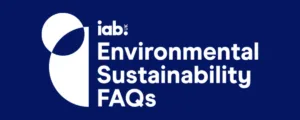For NDA’s Programmatic Month, we’re asking some of our favourite people for their predictions for programmatic technologies and advertising in 2021. Next up is the one and only Danny Spears, COO, The Ozone Project.
When asked about industry predictions this time last year, I can’t imagine anyone would have anticipated the incredible disruption we’ve experienced in the past nine months. The impact of COVID-19 has permeated every industry, accelerated digital growth and it’s highly likely as we move into 2021 that the pandemic will continue to impact both positively and negatively on the world of programmatic.
Putting this to one side, there are a number of trends that we’ll likely see continue into the new year. Anti-trust challenges will continue – whether from a consumer or advertiser perspective – and our industry must take responsibility for addressing and correcting bad practice.
Privacy remains top of mind be it as a result of regulatory moves or through the actions of the major tech companies, while the fall out from the ISBA/PwC study into programmatic supply chain transparency is never far from the lips of major advertisers.
Advertisers and publishers will take more control
Beyond this, there are four key areas that I believe will be in the spotlight as we move through the next twelve months. Firstly, we will see control within the programmatic supply chain move away from the middle. This means advertisers and publishers will reclaim primary stakeholder status in the advertising exchange – a position that is rightfully theirs given the relationships they hold with consumers and their status as data controllers.
The intermediaries who adapt their models to work in the true interests of either the advertiser or the publisher, are those most likely to thrive.
Adtech becomes Adnet
This shift of control from the centre means many companies are having to reinvent themselves – something that comes with both its upsides and downsides. For example, we’re seeing some SSPs react to this change by becoming more demand focused, an alignment with the buying community that positions them to compete for media dollars against their own patrons.
As we move into 2021 this certainly presents an opportunity for truly publisher-centric SSPs to evolve. We’re also seeing similar moves from DMPs, who like the SSPs, are under pressure to diversify and are turning their hand to pitching for adspend. The big question for the new year is, which publishers will stick by their old adtech partners as they go head-to-head with the publishers’ sales team?
Where we see real potential is in the increasing number of marketplace initiatives, and the collaborative approach between buyers and sellers to provide seamless access to scaled audiences and first-party data. 2021 is certain to bring even more developments in this space.
Programmatic partnerships will be fewer and deeper
Next year will see advertisers and publishers place more emphasis on nurturing a smaller number of more strategic relationships that run deeper into their business. This genuine, connected approach will require a real alignment of working principles and practices, and will benefit those who add value to the process and heavily penalise those who simply extract value for themselves.
Open Market Programmatic will take its final breath
Okay, perhaps a bit dramatic, but given that only half of the market is currently addressable, 2021 will inevitably see the final nail in the coffin of OMP. The impact of Chrome’s decision to stop supporting third-party cookies has echoed through the industry since it was announced in January, and with regulators ruling that OpenRTB is not compliant, there appears no way back for OMP. What we’re likely to see instead is an acceleration of investment into private connections that offer the scale benefits of the open market, but without the privacy or brand safety concerns.
The FT has been a real trailblazer in removing its inventory from the open market, with Ozone’s partner, The Stylist Group, following suit. There is no doubt we will continue to see quality publishers remove themselves from a market that does not reward the value of their professionally curated, high attention editorial and the impact this drives for advertisers.
The world of programmatic is maturing, with some change enforced and some, like what we’re doing at Ozone, by design. I genuinely believe that the year ahead will present great opportunities for the forward thinkers who are willing to work together to create a new and better future.









